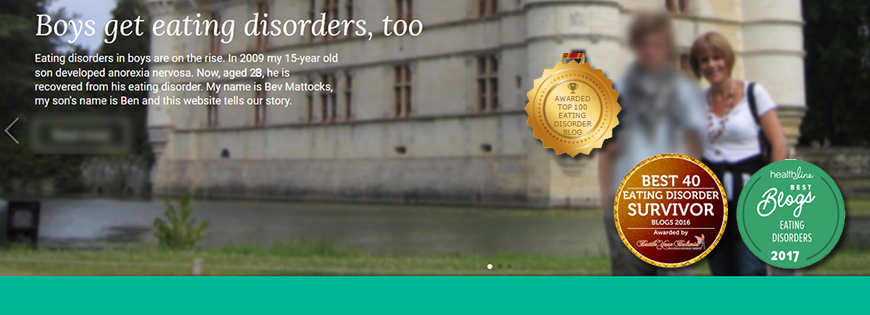One of the key things with an eating disorder is that it tends to isolate its victim. Before Ben developed anorexia over the first few months of 2009 when he was 15, he was top-dog within his social group. He had a lovely set of friends. He was hugely popular. But over the summer of 2009 he began to cut himself off from his friends. Very quickly, throughout the rest of 2009, Ben isolated himself. By early 2010 he couldn't even bear to be in the same room as his peers. Within a month or so we'd removed him from school altogether.
Although Ben did see his old friends now and again, for instance at the Year 11 school prom, he found it massively difficult to socialise and then only when he'd had a few drinks (and Ben doesn't like drinking). The eating disorder demanded his full and undivided attention. It wanted Ben to itself and it held him within an iron grip. So - as well as facing the problem of eating, weight, crushing depression and evil moods, and Ben's powerful exercise compulsion - we faced this huge problem of social anxiety.
Extreme social anxiety.
For months... years... while Ben's friends grew up and did all the things that 'normal' teenagers do, Ben stayed at home, on the sofa with us, night after night after night.
It was a really difficult nut to crack, and this was one of the reasons why university failed last September.
But, back home last autumn, Ben threw himself into getting out there. He did voluntary work and - more recently - he very gradually established a small network of new friends through his hobby, Warhammer.
However it was a very slow and difficult process.
While his friends grew up and learned all the late teen and young adult social skills as they went along, Ben missed out on this.
All credit to Ben that, from Day One at university this year he has made himself get out there and get amongst people. It has been massively tough for him, a true baptism of fire, but he has persevered.
But he is still suffering from this gap in his skillset plus the social anxiety and fear, and low mood / self esteem plus anxiety-fuelled lack of sleep - all legacies of the eating disorder. To other people he may come across as a bit 'different', even a bit 'odd', even 'arogant' sometimes as he attempts to behave like everyone else and make friends.
He gets on with a guy on his course and a few other acquaintances. But, he insists, most people ignore him or deliberately avoid him. He feels unlikeable, odd, 'that wierd guy'...
And this week it got to him, big-style, which is why we had the nightmare 36 hours described in my previous entry.
I really hope that through Emily's and Rob's plan, Ben will be able to find people who are very similar to him. Emily says we wouldn't believe the number of students she's already seen this semester with virtually carbon-copy problems. Lots have left already and others have scarcely emerged from their rooms.
Having this support, and these mentors, will help Ben interact with other people and have people he can fall back on for support and guidance when things aren't going too well.
Because what none of his university peers realise, of course, is that Ben is 'learning on the job'. Unlike them, he isn't coming to university with years of life experience. He has been on Planet Zorg for three or so years, completely removed from normal teenage development. And so he is having to learn these skills now, at this late stage, and it's bloody hard - and it can come across as fake, arrogant, wierd or whatever.
I really hope that Ben engages with Student Services' Plan - not just for a few weeks but throughout the whole year, especially when it comes to exam time.
Monumentally tough as it is for him, Ben has insisted that he wants to stick it out at university, so it's up to him now to use the tools we have provided for him to make it work.
You wouldn't believe how much I long, long, long, long for it to work and for this horrible legacy of the eating disorder to go and for Ben to be happy and popular again.
As I said to him: "During those first four years of secondary school, you had four years of being mega popular and having loads of friends, so you've got it in you and it's genuine. No way could you have faked four years of being the most popular guy in your friendship group. So it's just a case of finding that old Ben again and dusting down old skills that are still there somewhere, and drawing on them again. Basically, back then, people liked Ben and they liked him alot. And I'm not surprised, because you're a lovely guy - the kind of guy people would love to have as a friend. And this can happen again, because this is the 'real Ben'."
But it's not easy. And it's heart-breaking to watch him struggle.

No comments:
Post a Comment